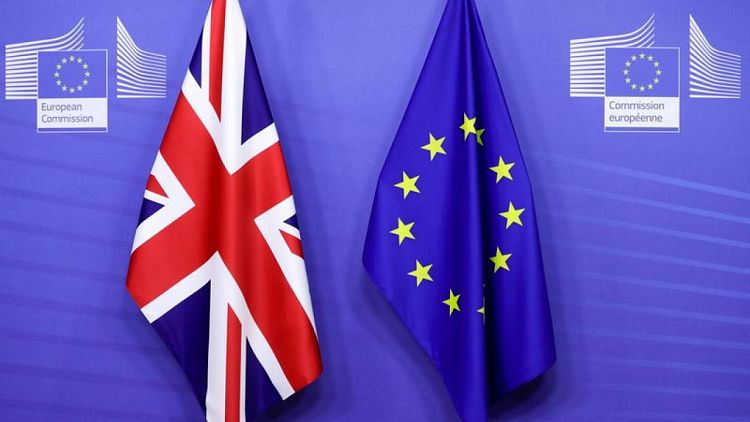By Kate Holton
LONDON -Britain has delayed the implementation of some post-Brexit import controls for a second time, saying it would phase in checks through next year rather than impose them now when industry supply chains are under strain.
Britain left the European Union's single market at the beginning of 2021 and the immediate introduction of checks on British goods going to Europe has hit sales hard.
The logistics industry had warned that introducing import checks on goods coming to Britain would compound problems stemming from the COVID-19 pandemic and a shortage of truck drivers, in the run up to Christmas.
Having already delayed their introduction by six months from April 1, the government has now pushed the need for full customs declarations and controls back to Jan. 1, 2022. Safety and security declarations will be required from July 1 next year.
Industry sources in the logistics and customs sector have said the government's infrastructure was not ready to conduct the full checks by Oct. 1.
While the move will be welcomed by some in the logistics industry, the food and drink trade body attacked the government for the late announcement. New checks on food products had been due to come into force in 17 days.
"The repeated failure to implement full UK border controls on EU imports since 1 January 2021 undermines trust and confidence among businesses," Ian Wright, head of the Food and Drink Federation, said. "Worse, it actually helps the UK's competitors."
The industry argues that while European producers can still sell to Britain without the extra cost and hassle of a full customs border, British producers face the reverse. First-half sales of food and drink to Germany, Spain and Italy were all down by around half compared with 2019, it says.
The government said it had introduced a new "pragmatic" timetable to give companies time to recover from the pandemic.
British businesses, and customers, have complained in recent months that a shortage of workers in logistics, driving and warehouses has led to long delays in deliveries, with some supermarkets and restaurants struggling to stock a full range.
"Businesses will now have more time to prepare for these controls which will be phased in throughout 2022," Brexit minister David Frost said.
Britain opted for a full customs border, with checks on goods and lengthy paperwork, due to the nature of the divorce it agreed with Brussels, choosing full autonomy over its regulatory affairs as opposed to a closer alignment with the bloc.


